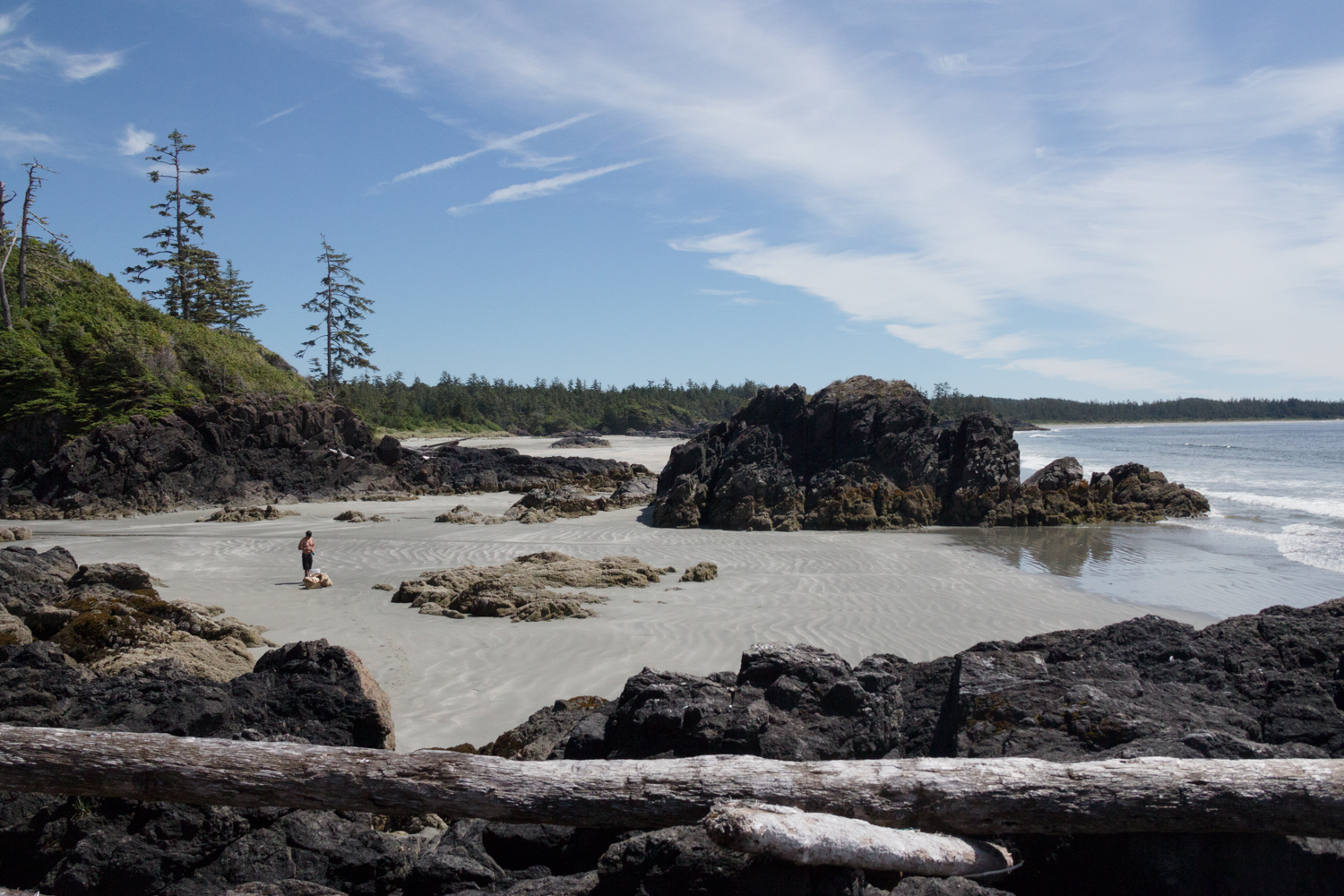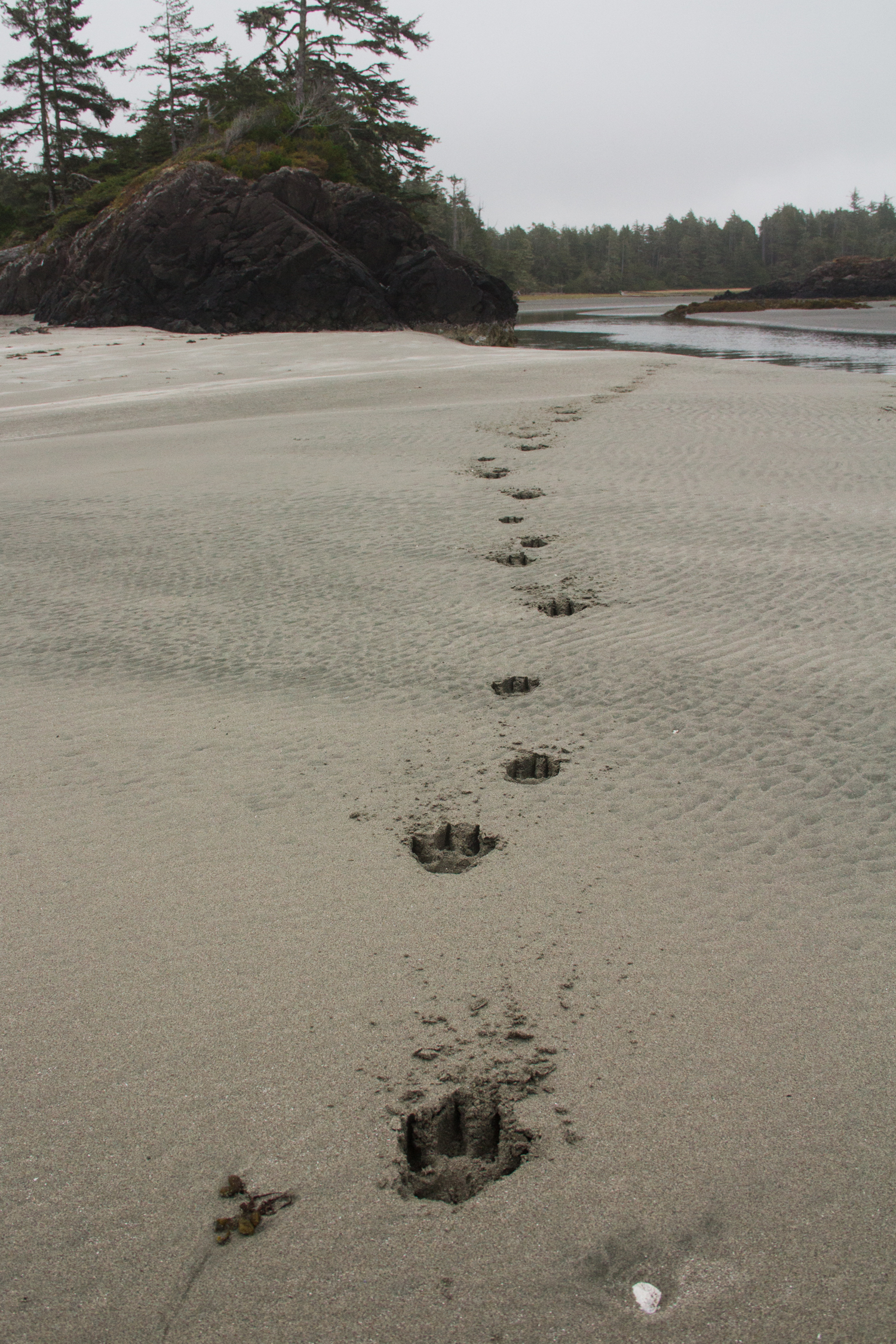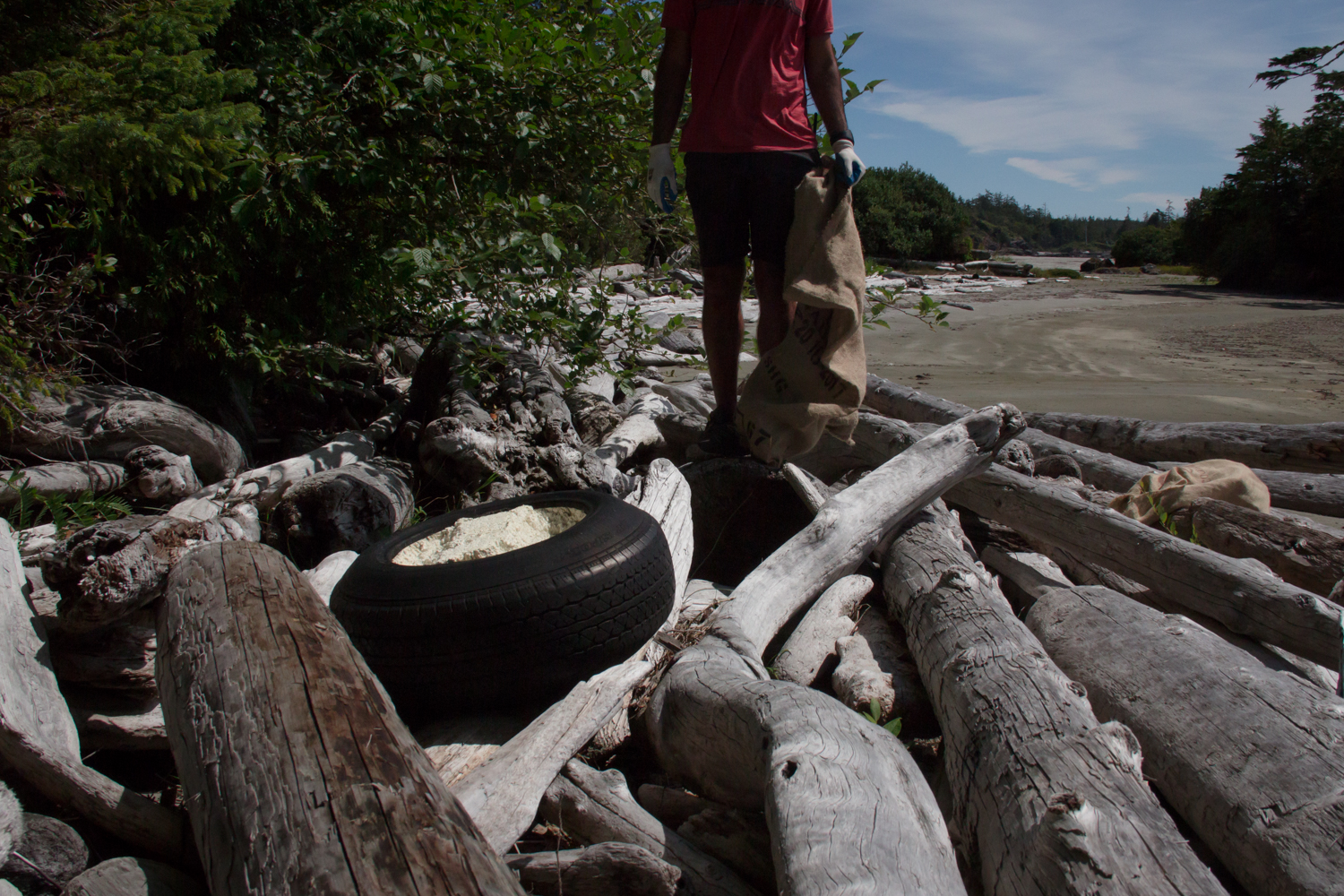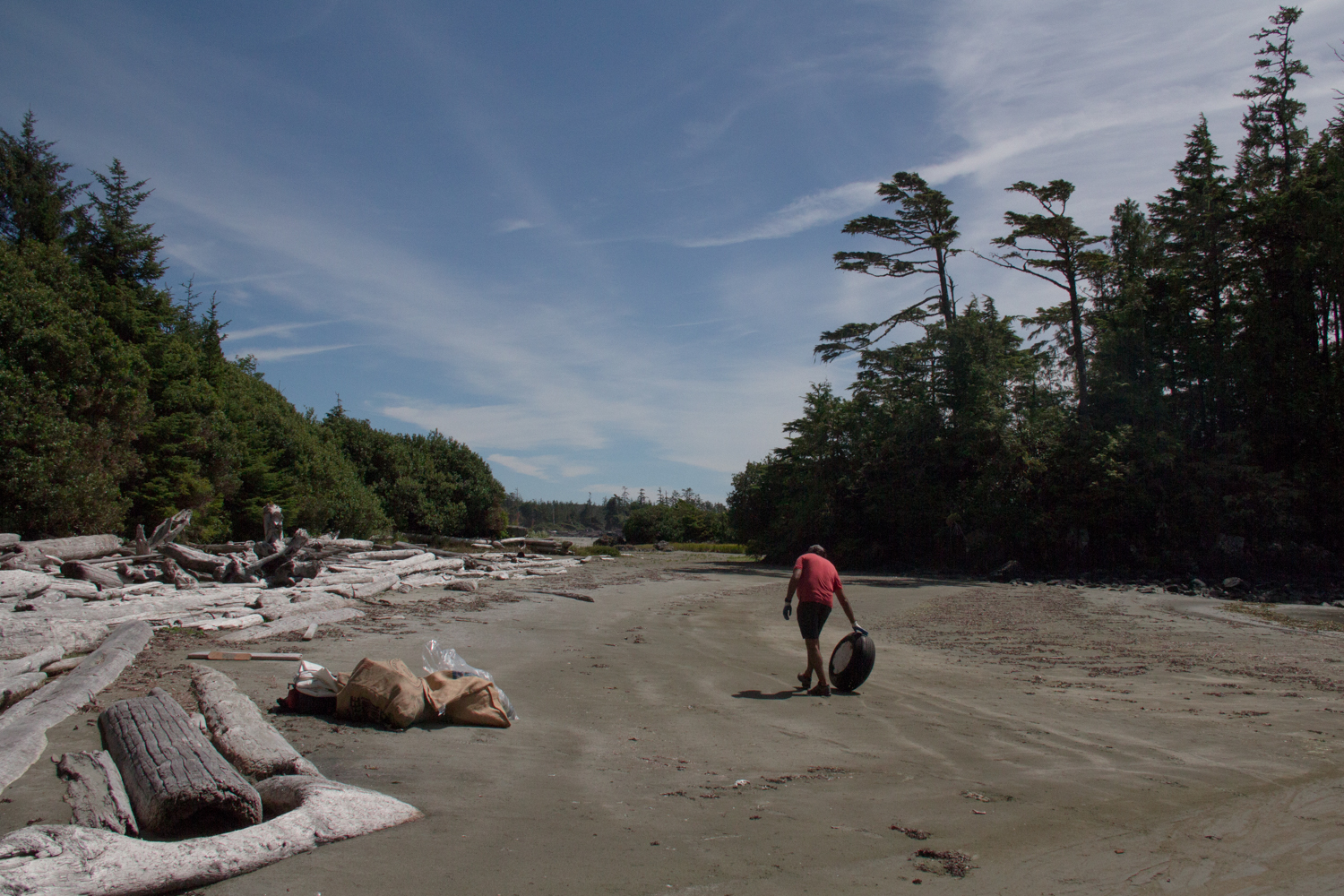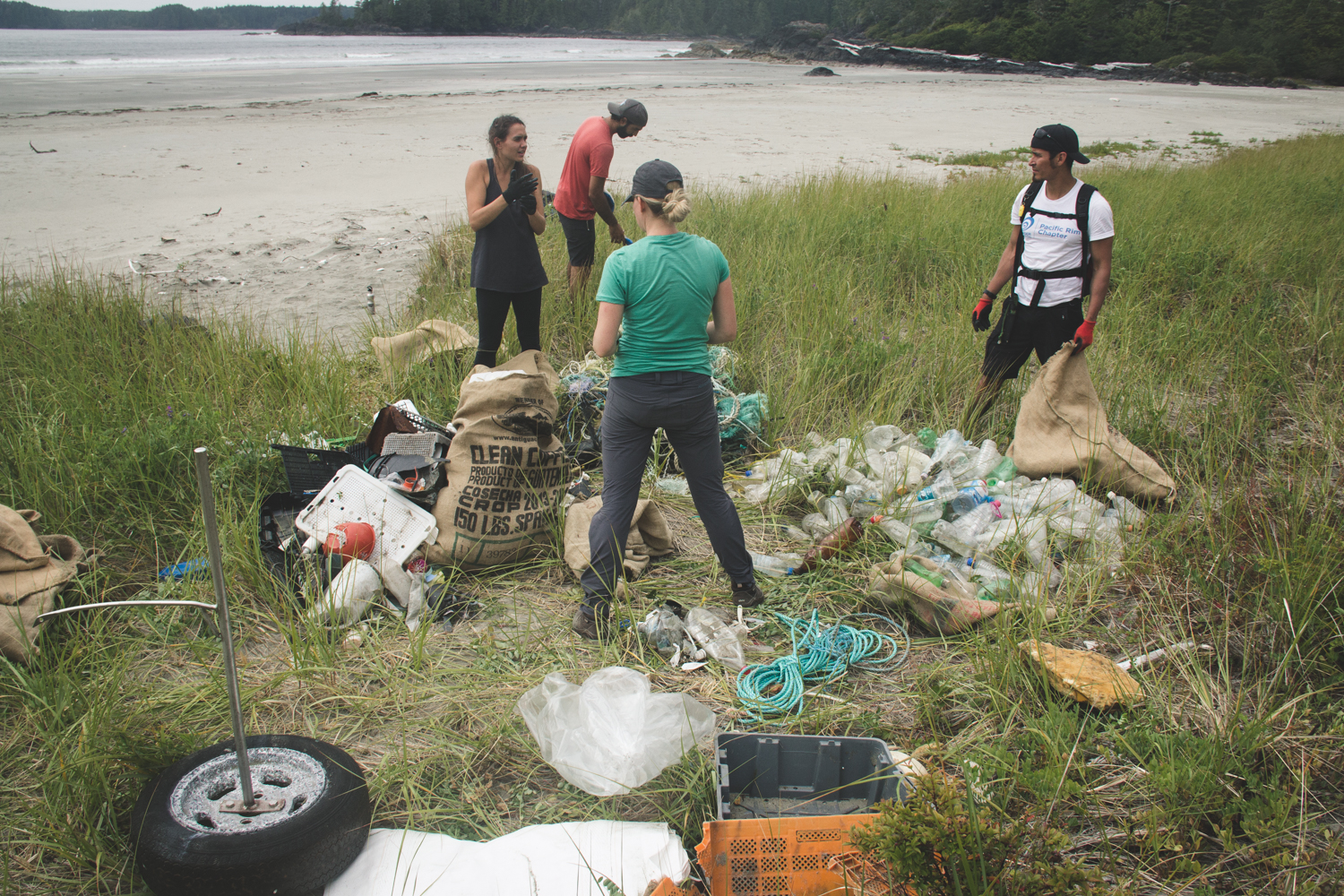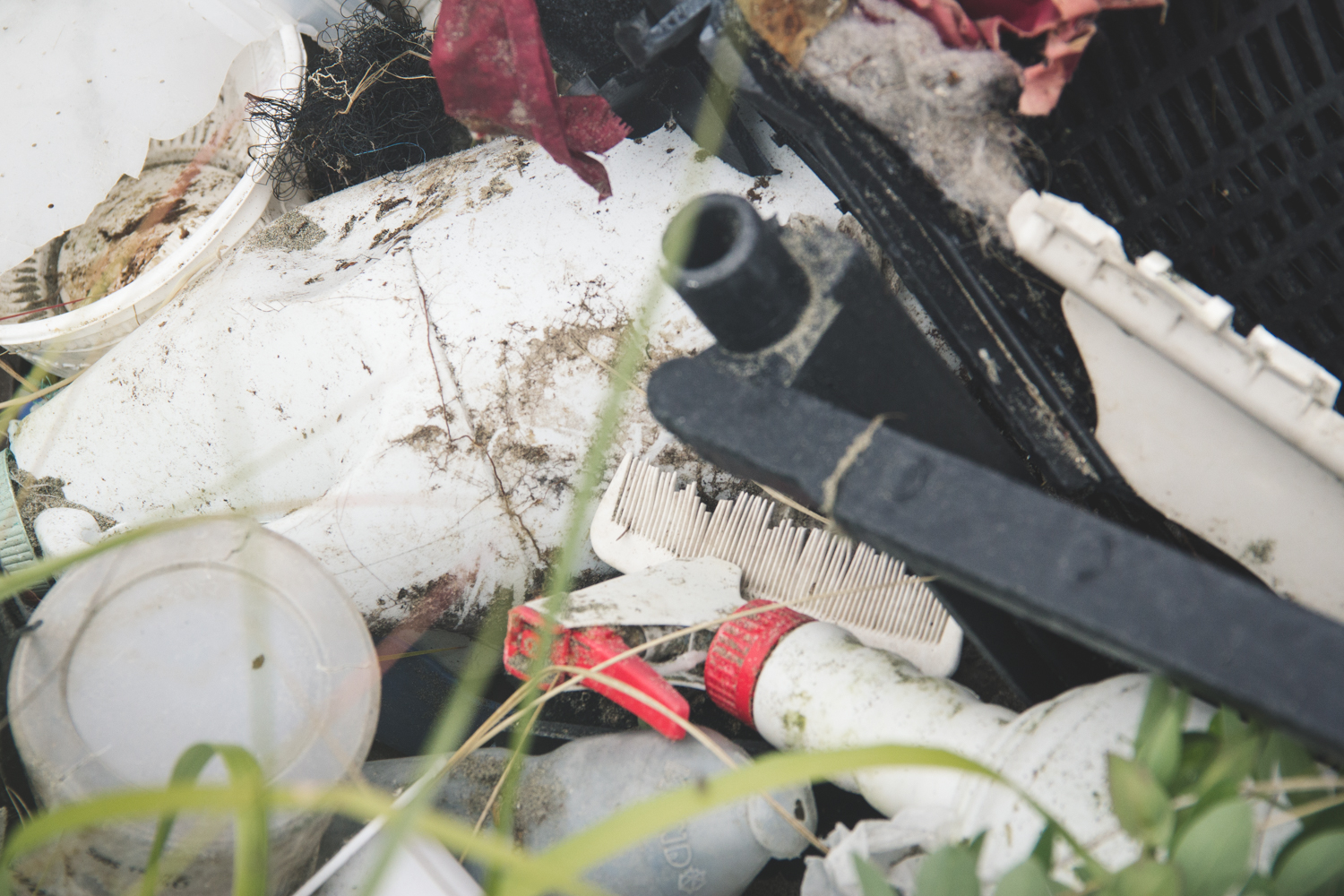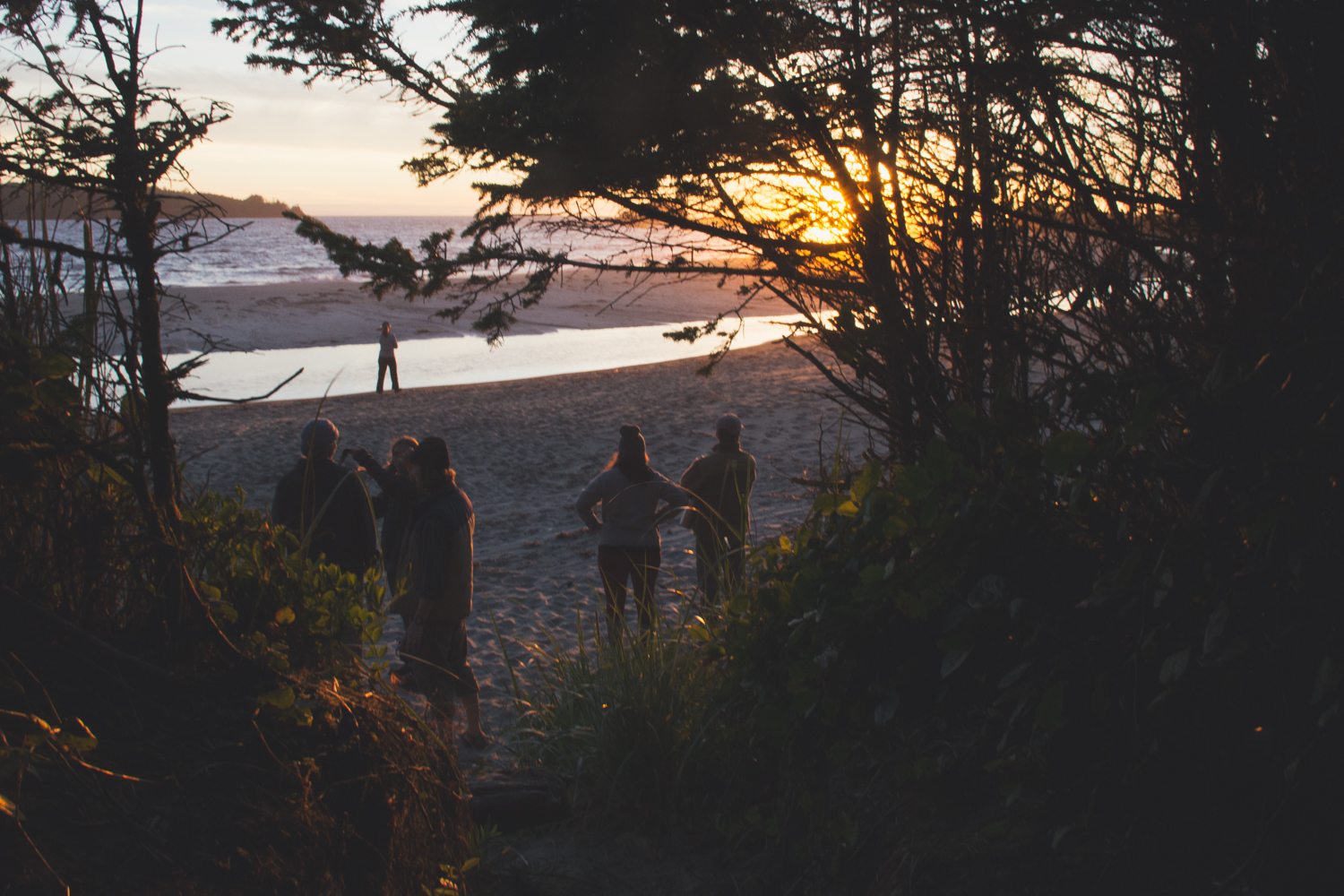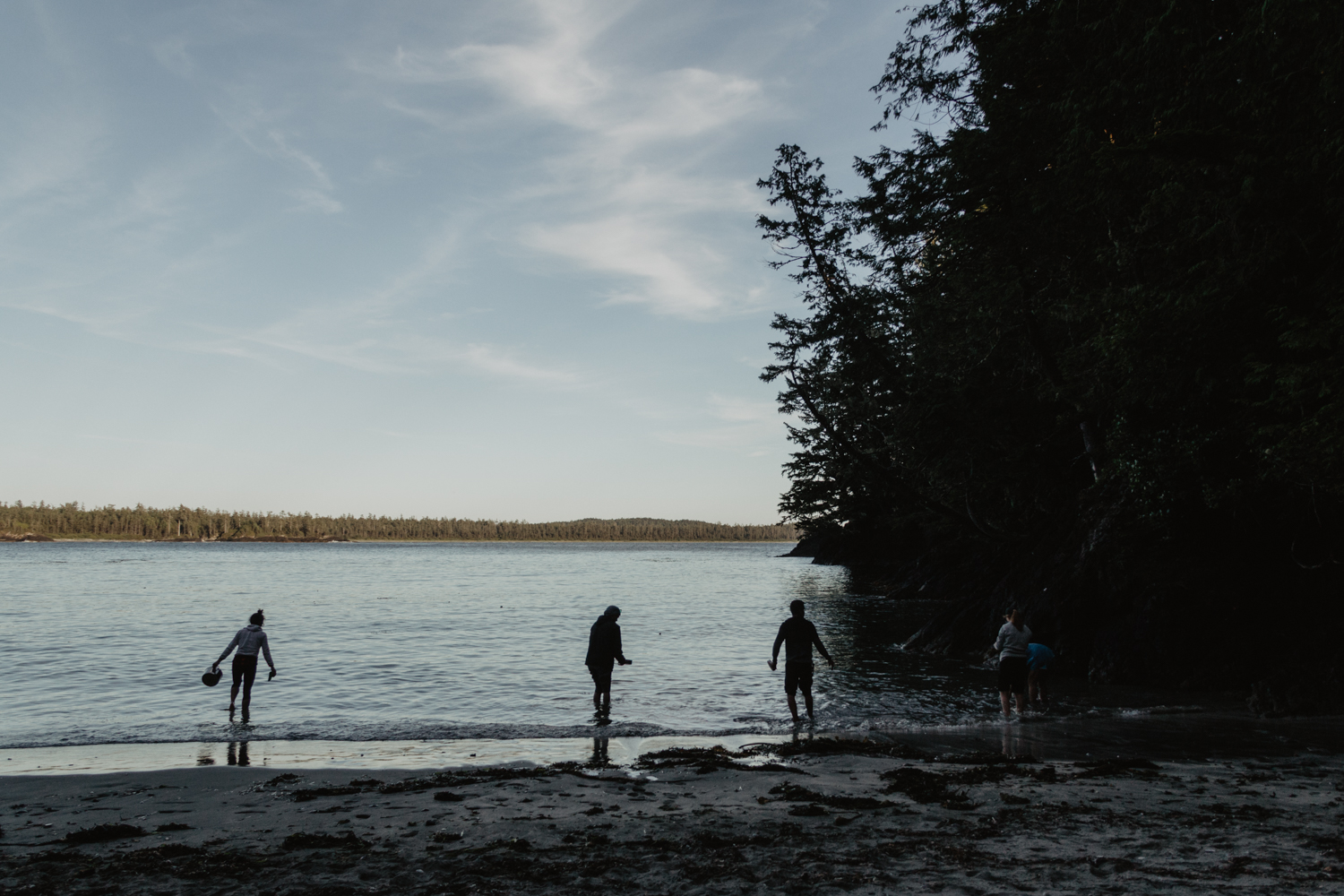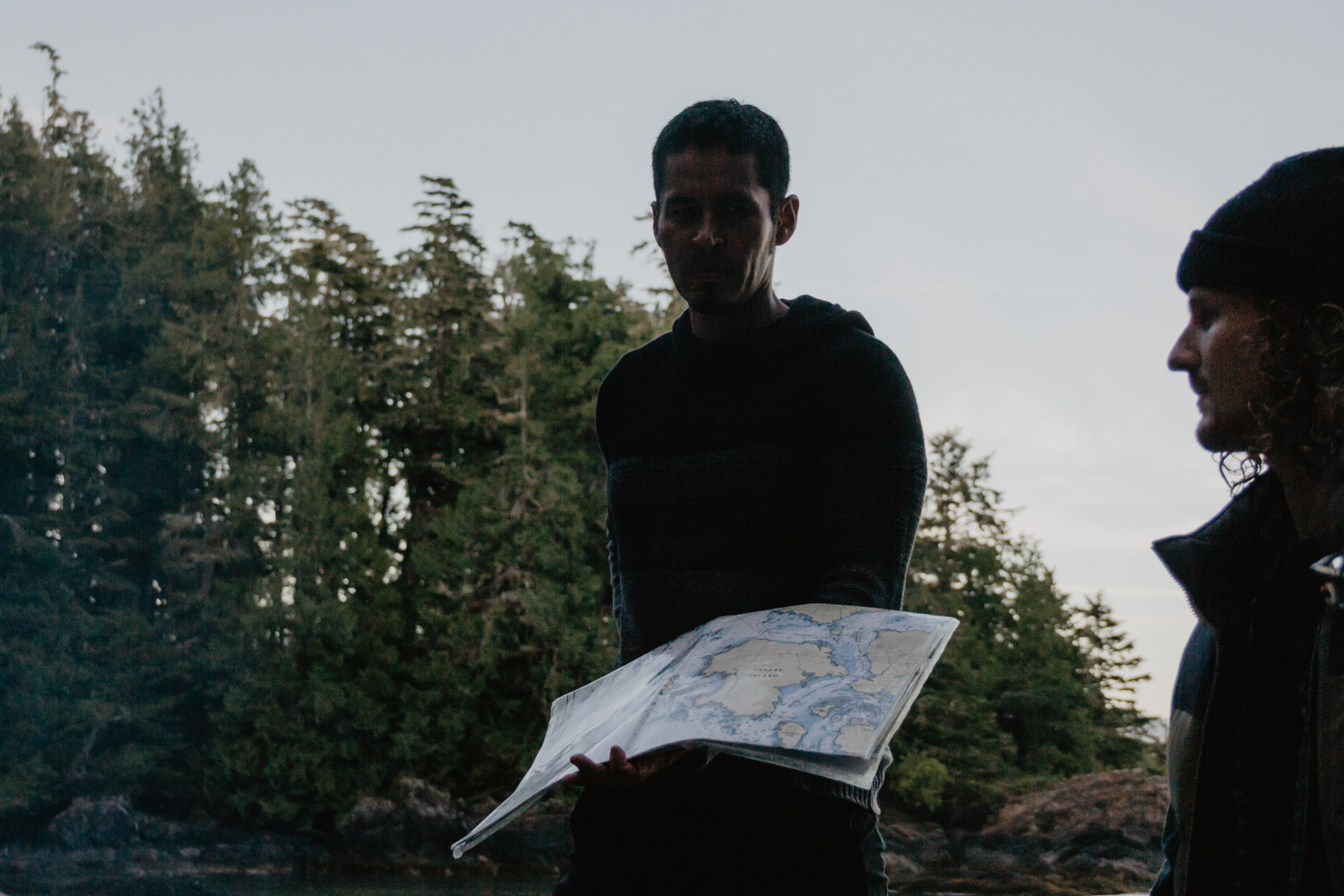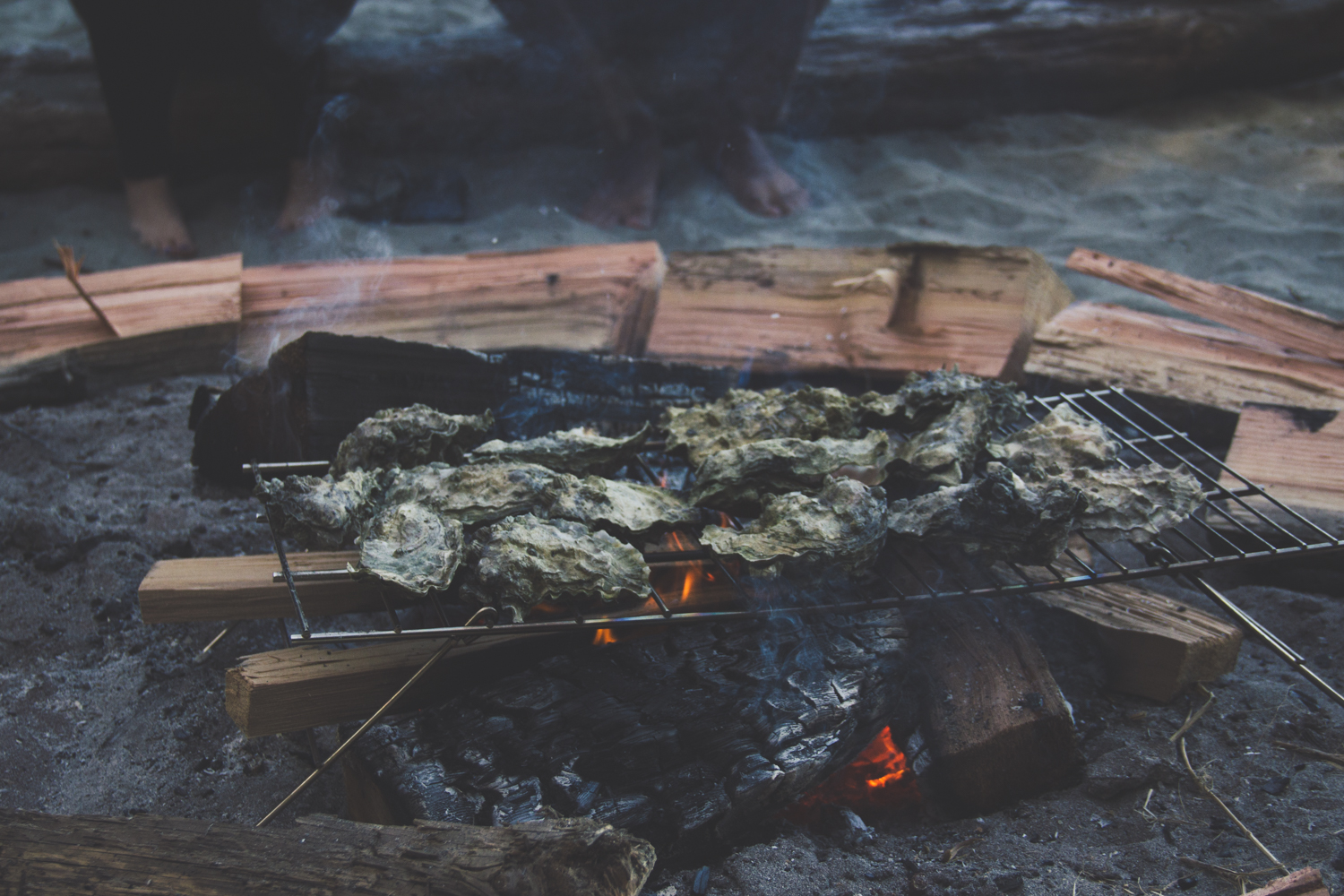Rising Above Plastics with Surfrider
Nikkey Dawn relays her experience participating in a remote beach clean of Vargas, Island with Surfrider Pacific Rim. She also details the valuable work Surfrider has done in British Columbia, Canada, via excerpts of an interview with Chapter Manager Lilly Woodbury. In the end, Nikkey leaves us with an encouraging message to never give up on doing what we can to alleviate the ocean plastics problem. All photos are by Nikkey Dawn; you can find her on Instagram at @nikkeydawn.
Overwhelm. It’s a persistent emotion here on this island. It buzzes around like a black fly emitting a steady drone of “it’ll never be enough.” I have to shut it out or its prophecy will come true. We are on a two-and-a-half day remote beach clean of Vargas Island, traditional territory of the Ahousaht First Nation, and a Provincial Park, located off of Tofino, BC. We are limited on time, resources, energy, and daylight while at the mercy of the ever-changing west coast weather.
I realize quickly that I only have time to go after the larger pieces of marine debris and plastic; there’s no way I can spend all day picking out the small pieces from the bluffs and sand. But it kills me to leave them behind. I’ve joined Surfrider Pacific Rim after stepping off of an 8-day sailing voyage documenting and researching microplastics in the ocean with eXXpedition. I know how much damage these seemingly innocuous little pieces of plastic can do as they infiltrate the food chain. I follow the wolf tracks down the beach, filling my sack up with buoys, water bottles, toothbrushes, synthetic facial wipes, and all other manner of consumer waste as I go.
Surfrider Pacific Rim’s remote beach clean program started after a few of its members joined a District of Ucluelet clean up trip to the Broken Group Islands in 2016. They left inspired and were spurred into action after a shipping container spill off the coast of BC a few months later. They’ve removed 20 tonnes of marine debris from the Pacific Rim to date. On this clean up there’s 15 of us split into three groups focusing on different sections of Vargas Island and the nearby Blunden Island. By the end of the weekend, we’ve each collected 3-4 times our body weight in waste.
Chapter Manager Lilly Woodbury recognizes that the value of these trips isn’t only in the restoration of the environment but also in the restoration of our connection with it and ultimately ourselves. She says, “I've seen participants become pretty emotional about it (the clean up process), and I know I also flow through many different emotions in any one clean, and this mental processing definitely transforms us. In this processing we reconnect to the remote outdoors, unplug from technology and the hectic nature of modernity, and we get clear on a whole lot--like what really matters in life. We realize taking care of ourselves matters, connecting with other people--who are often strangers--matters. Connecting with and healing the planet matters. There is a deep inspiration that flows through us from this, and this inspiration creates a drive in us to make change, to challenge the issue.”
Lilly invited me on this trip to talk to the group about eXXpedition’s microplastic research and findings. After bushwacking back to camp on the second night, we gather around the fire to break bread and oysters. I share that not a single one of our ocean samples came back clean of microplastics and watch the faces around me fall. I hate this part, but it’s also how I know I’m talking to the right people. We’re all out here together because we don’t want to see where we surf, swim, dive, or forage turn into a plastic soup.
Surfrider Pacific Rim is dedicated to preventing that particular future. They don’t only focus on clean up efforts but also on reducing plastic pollution at the source. The data gathered from beach cleans is used to campaign for bans on single-use plastic items, set up recycling programs, and educate youth. Their umbrella campaign Rise Above Plastics has been successful in getting both plastic straws and bags banned in Tofino and Ucluelet for 2019. Lilly credits the results to their strategy, saying, “By targeting just straws, we could highlight how much pollution is caused just from this one item, and how unnecessary this item is for a vast majority of people. By targeting one item, we could introduce the idea, and not overwhelm people. We wanted this campaign, and the Ban the Bag Campaign, to be championed by the community, which it 100% has been.”
This is a huge win for consumer waste, but there’s a big elephant (or sperm whale in this case) in the room when we talk about ocean plastics--the fishing industry. Discarded and lost fishing gear accounts for 46% of all ocean plastic. Calling for industry responsibility isn’t easy, but Lilly knows it’s necessary. So far, she reports, “We have presented on our remote clean data to different companies in aquaculture, and from here, these companies have created a marine debris guideline. These companies are also being held more responsible for the marine debris they may be causing, and from this pressure, I feel that positive changes are continuing to be made to stop this source of marine debris.”
This multi-pronged approach is what we need to tackle the plastic problem. There is no magic material or miraculous technology that will fix our mess; it’s going to take action from every single one of us. As I weave through the ferry line-up on my way home from Vancouver Island, I pass a family picnicking on fast food with straws and all, a woman giving her dog water in a single-use plastic bowl, a couple hugging their styrofoam take-out, and a group of dudes tailgating with their plastic-filtered cigarettes. I begin to wonder how many of these people spent the weekend contributing to the problem we were cleaning up.
But before I let that black fly start buzzing too loudly, I marvel at the fact that, for a couple days, a nomadic community came together with no other purpose than to take care of our planet. Lilly’s been reading a book called Getting to Maybe: How the World is Changed, with a fitting conclusion: “There are no perfect people. There are no perfect projects. We are not measured against perfection, only called to do what we can, to set out on an exploration to an imagined destination, to an imagined good. So forget about the fear, forget about the guilt, forget about the fact that the doorway makes no promises. Just step through. Don't miss all the fun."

